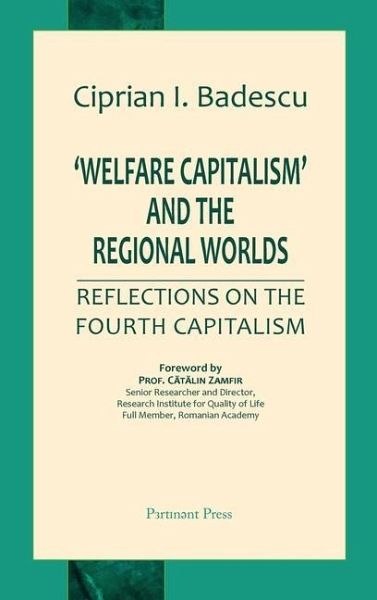
'Welfare Capitalism' and the Regional Worlds
Reflections on the Fourth Capitalism
Versandkostenfrei!
Versandfertig in über 4 Wochen
90,99 €
inkl. MwSt.

PAYBACK Punkte
45 °P sammeln!
This book encompasses a specified review of welfare state theories, starting with the tradition established by Gosta Esping-Andersen, but following an additional line of interpretation. Dr Ciprian I. Badescu re-evaluates the theories of welfare state developments based on the idea of the fourth type of capitalism. The previous historical types of capitalism were based on the strategy of the world's homogenization not on its differentiation. The fourth capitalism is able to reconstruct the world economy in full harmony with different regional worlds. Dr Badescu's idea is that the stakeholders a...
This book encompasses a specified review of welfare state theories, starting with the tradition established by Gosta Esping-Andersen, but following an additional line of interpretation. Dr Ciprian I. Badescu re-evaluates the theories of welfare state developments based on the idea of the fourth type of capitalism. The previous historical types of capitalism were based on the strategy of the world's homogenization not on its differentiation. The fourth capitalism is able to reconstruct the world economy in full harmony with different regional worlds. Dr Badescu's idea is that the stakeholders are by now interested in supporting the welfare regimes in a regional style despite the globalized profile of the world. Capital is motivated to accept regional differences and sometimes even national differences, since these are the main factor of local prosperity. Dr Badescu suggests the key concept of quasi-rent, that is to say the rent of regional identity, of what the new global theories used to call the "globalization" phenomenon.




